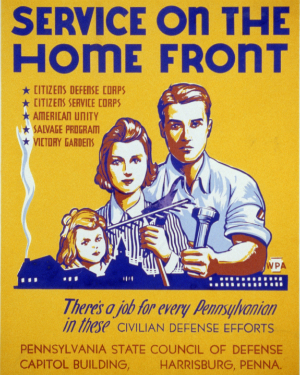Time to get serious about national service

By
Col. Margaret Cope, USAF (Ret.)
Best
Defense guest columnist
After serving 30 years in the Air Force, I am
passionate about our country providing the opportunity for young men and women
to serve. Since the draft ended, the American public has become disconnected
from the men and women in the military.
Even our former secretary of defense Robert
Gates stated that our citizens view our wars as an "abstraction" that does not
affect them personally. After 9/11 our country missed an enormous opportunity
to engage the citizenry, particularly folks in the 18-26 age range who are
beginning their adult lives and have the ability to contribute the rest of
their lives.
Our country has a democratic form of government,
which by definition is a participatory government, not a spectator government. All
citizens must be engaged or we risk losing our democracy. Our founding fathers
believed all would participate as stated by George Washington, "It may be laid
down as a primary position, and the basis of our system, that every Citizen who
enjoys the protection of a free Government, owes not only a proportion of his
property, but even of his personal services to the defense of it."
Currently less than 1 percent of Americans
serve in our military. The rest of the population -- 99 percent, for the most
part -- is unaware of the military. Although other forms of national service
exist, with the budget constraints, now is the time to consolidate and provide
more structured, safer, and meaningful opportunities.
My concept of the national service framework is
comprehensive and bold; it's not for those who like small steps and fear
transformative, big ideas. National Service will be voluntary and must include
the military -- the most committed, professional, well-trained example of
national service.
This framework is based on voluntary
participation and provides a menu of opportunities for citizens between the ages
of 18-26 to serve. All volunteers will serve a minimum of two years and will
receive lodging, uniforms, healthcare and food allowances, stipends, and upon
completion of their term of service, numerous government incentives tied to
performance, to include at least an education debt reduction or an education
allowance similar to the GI Bill and other options to support the national
service mission, its culture. Libertarians who don't want to serve would be
ineligible for some government incentives including student loans, to be given
upon completion of the term of service.
National Service will be the umbrella
organization for the entire enterprise with the pillars being: the military,
which would include recruitment, orientation training, and upon completion of
service, the same national service benefits along with military benefits; the
Corporation for National and Community Service (CNCS) organizations including
Americorps, VISTA, Equal Justice Works, Teach for America, and Children's
Corps; the Peace Corps; a revival of the Civilian Conservation Corps; a medical
corps; a legal corps (move Equal Justice Works from CNCS); an administrative
corps; a cybersecurity corps; and others. All of these functions could support
our military and serve on military reservations.
As a nation, we cannot underestimate the
importance in a moral democracy to serve. We must engage our greatest resource,
our young citizens, to serve others and uphold our democratic principles to
attain opportunity and inspire hope.
Margaret
Cope, a retired U.S. Air Force logistics colonel, serves on the Executive
Committee at the Reserve Officers Association (ROA), consults, and is a former
senior advisor at the Project on National Security Reform (PNSR).
Thomas E. Ricks's Blog
- Thomas E. Ricks's profile
- 436 followers



